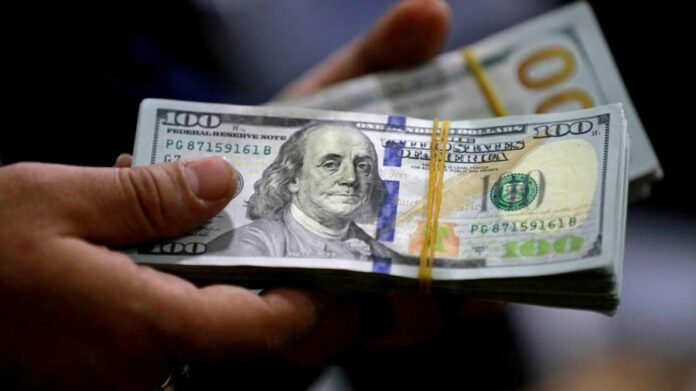A recent spate of currency devaluations has highlighted the intense pressure on many emerging economies, as the strength of the US dollar forces them to spend precious foreign reserves supporting their exchange rates.
Egypt, Pakistan and Lebanon all abandoned longstanding policies of pegging their currencies to the dollar in January. With the US currency remaining historically strong despite falling back slightly since October, economists and investors warn that a further slew of emerging and frontier markets may be forced to succumb to market forces and follow suit.
“There is a compelling case for them to seize the day,” said Robin Brooks, chief economist at the Institute of International Finance, saying that Ukraine, Nigeria and Argentina are among economies likely to see their currency pegs come under pressure, particularly if an escalation of Russia’s invasion of Ukraine reignites inflationary pressures leading to higher borrowing costs in the developed world and further gains for the dollar.
Recent inflation and employment data from the US have raised fears on financial markets that investors have been too sanguine about the future path of US interest rates, and that the Federal Reserve may keep them elevated for longer than previously expected.
The trio of countries to devalue so far this year did so in a bid to unlock emergency finance from the IMF. With 60 per cent of low-income countries at risk of debt distress or already in it, according to the IMF, more controls will be put to the test this year, analysts say.
Egypt’s 23 per cent devaluation since January 4 was the third since March last year, when the government began lifting a peg in place for five years. The pound has since lost about half of its dollar value.
Pakistan’s rupee lost about a fifth of its dollar value after authorities loosened controls on January 26. Lebanon’s central bank let its currency plummet by 90 per cent against the dollar on February 1, removing a peg in force since 1997.
For many countries with artificially strong exchange rates, deciding whether to devalue is an invidious choice. Defending currency pegs depletes their often scarce foreign reserves and also stymies growth by making their exports more expensive.
But devaluation stokes inflation by making imports more expensive, and raises the cost of servicing foreign-currency debts.
Ukraine, with its economy and government revenues devastated by Russia’s attacks on civilian infrastructure, increased its monthly interventions on currency markets from $300mn to $4bn between February and June last year. With money running out, it let the hryvnia slide by nearly 25 per cent against the dollar in July.

But the central bank again spent more than $3bn a month in December and January to defend the new peg, prompting talk of a fresh devaluation.
That, said Viktor Szabó of investment management company Abrdn, would not be the best policy right now. “It would only bring more inflation and increase the suffering of the people,” he said.
The central bank has explicitly ruled it out, saying foreign funding will help keep reserves above their current level of $30bn this year.
Turkey, too, is unlikely to address any time soon what many analysts see as an artificially strong currency given the intense inflationary pressures faced by the population which could be compounded by the recent earthquake.
Others have run out of options. Ghana’s central bank drained its reserves to support its currency for years. In December, the government abandoned these efforts and instead said it would no longer service its external debts, and launched a punitive restructuring of domestic debt. The cedi, which appreciated strongly in the run-up, has since lost half its dollar value.
Next may well be Nigeria, which has long had what analysts say is an unsustainable system of multiple exchange rates. A shift to a simpler system is expected to follow elections on February 25.
“Markets will definitely expect some change and if it doesn’t come, there will be more of the pressure we have seen for the past 12 months,” said Simon Quijano-Evans, chief economist at Gemcorp Capital Management.
Like Nigeria and Ghana, he said, other developing countries in Africa and beyond must make a clear separation between fiscal and monetary policy. Rather than relying on central banks to prop up their currencies or buy their debt, he said, governments should balance their books through fiscal reforms including taxation.
“This is not just for investors,” he said. “Local populations should be looking for this as the only way to get clarity and of making sure they are not hit by inflation or sudden devaluations.”






